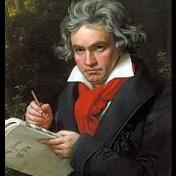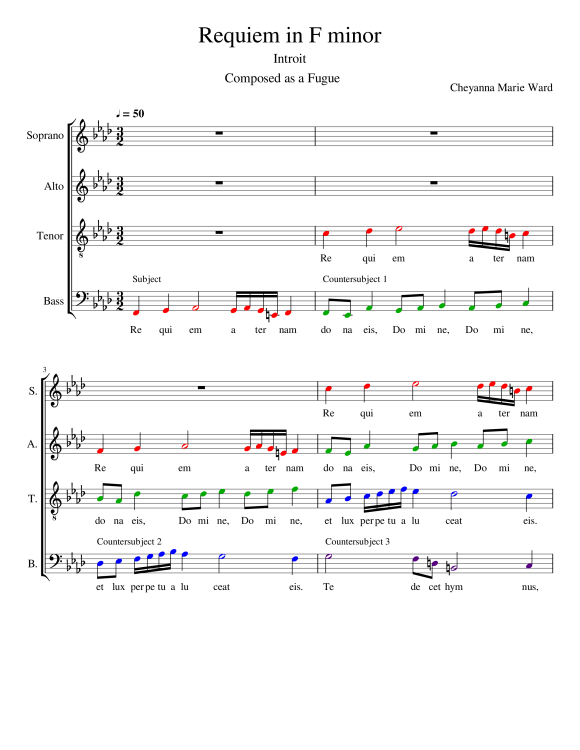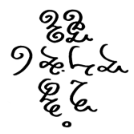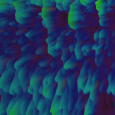Search the Community
Showing results for tags 'fugue'.
-
(I'm surprised my account still works - the site looks somewhat different now) Revision of an old (non-Baroque) scholastic fugue of mine written originally for unspecified instruments. The subject (what you can hear in the first 4 measures) was given; I worked it out in four parts, with one single invertible countersubject.
-
-
This is a short piece in the tradition of 19th century fugues with harmonies and textures a bit more adventurous than Baroque ones. You may recognize the subject from memes LOL. I also made a string trio version (which some people from Brazil asked me if they could play, but I never heard from them anymore).
-
Double fugue in gminor scored for 2x oboe, 2x bassoon in g minor. I think i will rearrange the fugue for two pianos... Written in the mid baroque style, so dont exptect those bach episodes 😉 Please telle me what you think. SimenN
-
I've always wanted to try writing a piece for organ. Though he didn't write much for organ, I am a big fan of Mozart's organ music and in particular his Fantasy in F minor which inspired this work in terms of structure and the fugal subject which is similar, though otherwise I treated the sections very differently. It is generally organized as a chaconne-like theme and variations in pairs separated by two extended sections (a fugato and a more lyrical section). I had posted an unfinished version of this in the incomplete section and I greatly appreciated the feedback. I also plan to transcribe a version for string orchestra.
-
Hello everyone! I recently finished composing a fugue for brass trio as a second part to the canon for brass trio that I posted some time ago. Since I do think that both pieces belong together and sound much better together, I post both pieces as one. The canon is a strict canon at the octave for the most time, but on measures 15, 21 and 22, the canon is broken on the top voice in order not to reach higher than the high C. The fugue starts at 1:45. It starts in Gminor but finishes in Gmajor (in the same way the canon started). It has a theme (subject), two countersubjects and it contrasts in rythm and tonality (since it starts in Gmin) with the canon. The measures in which the subject (or the tonal answer) appears and their tonality are the following: m.30-37: Gmin subject | Dmin answer | Gmin subject m.42-45: Bbmaj subject | Fmaj answer m.48-50: Dmaj subject m.53-54: Emin subject m.59-60: Gmaj subject Any feedback, suggestion or comment is welcome. Thanks for listening and hope you like it!
-
Fuga a 3 in g minor.mp3I recently have been reading and working through Jacob IJzerman's "Harmony, Counterpoint, Partimento" which I highly recommend, and I was inspired to write some short 3-voice fugues, mostly just to see if I could write them convincingly. Here's one of them. I scored it for flute oboe and bassoon so that the different parts could be heard easily.
- 4 replies
-
- 1
-

-
- baroque
- partimento
-
(and 3 more)
Tagged with:
-
Counterpoint is essential in my music (and it should be in general). I took some wonderful courses on counterpoint long ago, and they were essential in my personal musical development. I went into the idea of taking the basic concepts and use them in other styles. Fugue "a lo barroco" (baroque-style) is not my favourite field, but sometimes I do. it for fun, without that obsession about fifths and parallels, etc.... If it sounds good to me, it's OK. Three examples (the numbers is because they are part of a larger series): 08 Double Fugue in Ebm 11 Fugue in Fm (Doppo l'scuro nembo by Bellini) 19 Fugue in Am
-
Below is my first attempt at a fugue written for two violins. as such it isn't a conventional fugue as there is voice swapping across the board and does not necessarily follow the conventional harmonic series as I didn't pay too much attention and wrote this in a couple hours. Enjoy.
-
This is the first time that I improvised a fugue subject and multiple countersubjects and didn't immediately come across contrapuntal errors with my Check Harmony Rules plugin in Musescore. I haven't bothered to look more in depth though(like every note kind of depth). So there might be some errors that I missed. I want to resolve these before I move further with the fugue. As you can probably tell by the PDF file, I wrote this fugue exposition with the text of a Requiem in mind, specifically, the Introit, which is the first section of a Requiem mass. Augmented intervals, those most likely have to do with the leading tone combined with the minor key and thus, shouldn't be bothered with, right, so as to not stray away from the key too fast? Or are they unacceptable, even in minor keys? Here is the fugue exposition in image form, so as to highlight the Subject and 3 countersubjects: There, that is the fugue exposition. I figured that this Requiem fugue would be one of the best fugues for which the subject appearance order would be BTAS, or in other words ascending, to represent the ascent to heaven(I'm personally not religious, but I know some things about religion). Did I obey the counterpoint rules and write a good fugue exposition with 3 countersubjects? Or are there some errors that I missed? I mainly focused on not having parallel and direct octaves, fifths, and fourths, and not having too many parallel thirds or sixths, so I might have missed errors of unresolved dissonances and weak suspensions that did not get picked up on a first pass.
-
After a two-year hiatus, for the month of December I decided to go back working on this set of 26 minuets which I have been working on off from 2016 to 2017, and stopped in 2018 when I have other things to work on. Here's the status of the minuets as of April 2018: Anyway, after that and up till December, I have gained new musical knowledge and experiences which can be reflected in this new version of the set. More dynamics are added, the pitch range has also been expanded as well and incorporating other forms (Rondo and Sonata) into a few of the minuets as well. Many of the musical ideas for the minuets are taken from several sight-reading books, string quartets by Mozart and Haydn and other composition and theory workbooks. It has been quite a lot of fun finishing the set, exploring new musical ideas and many major/minor keys, and through this I have grown as a composer. I plan to move beyond the piano and work on a set of preludes and fugues for string quartet after this. I also hope to live record these minuets one day, especially the whole tone (XXV). Any suggestions on how to improve, or if you need to understand some of my thinking behind the minuets, you can say so in the comments. (I'm still working on a commentary by the way, but need to tell you that the last uses two different octatonic scales for the minuet and trio respectively.) For those who are not able to listen to the whole set, I suggest looking into these: II (A minor), IV (E minor), VI (E minor), VII (A major), IX (E major), XII (G sharp minor), XIII (F sharp/ G flat major), XIV (E flat minor), XVI (B flat minor), XIX (E flat major), XX (C minor), XXIII (F major), XXIV (D minor), XXV (Homage to Debussy), XXVI (Homage to Prokofiev).
-
I am embarrassed that it took me a year to 'complete' two compositions (Obsidian and Voile d'automne). People in this forum wisely advised that I should 'lose my first hundred compositions quickly', so as to learn from my errors and move on. So this morning (Christmas eve) I determined to complete an albeit short composition in a day. Here it is, a simple fugue. I sketched the basic idea while out walking in a local wood, transcribed it when I arrived home, and developed it through the day. I hope that I have avoided orthographic issues, which have dogged much of my work to date. As the complexity of the piece increased, I realised that dynamics play an important role. I use MuseScore both for transcription and for playback. With MuseScore playback the scored dynamics work (reasonably) well, and I hope that this remains the case with the MP3 file. One of the issues I soon discovered is that I had to cheat by altering some notes to avoid unwanted dissonances. I should appreciate guidance on how I ought to be handling the issue. I participate in this forum because I am eager to learn. Feedback will be gratefully received. In an early scene in Roman Polanski's movie of Thomas Hardy's novel Tess of the d'Urbervilles, a bevy of young woman dressed in white dance round a maypole. The simple country music swells as the observer approaches the maypole, and falls again as the viewer departs. Happy Christmas.
-
I spent most sunday working on it and I think it to be decent enough for me to post it. Anyway, hope you enjoy it, here it is:
-
There is my 3-part fugue in G major. What do you think? EDIT: I finally composed a short prelude
-
I Like composing music for fun, but I am trying to learn how to compose Fugues like J.S. Bach. I have tried composing a few and I've been trying to learn how to have independent voices. I still need to perfect counterpoint and harmony and there may be too many consecutive fifths and octaves. Does anyone know how I can improve my fugue composing skills so this can actually be called a fugue? Ed's_Prelde_and_Fugue_in_A_major.pdf The audio for this score can be found here. https://musescore.com/user/10553021/scores/4692441
-
Subject: 2 Bars
-
I think this is a (proper) Fugue, but I would like confirmation, etc, fugue2?.mid
-
My first proper attempt at writing something baroquey. I was wondering, what's the best way to describe this piece, academically speaking. Fughetta, Fugue, Double Fugue, Counter fugue?
-
I was wondering about how to start writing a fugue? I understand they are hard to play, so is there a good process? I mean like composing in front of a piano kind of way. Help appreciated!
-
This is a three voice fugue written for harpsichord. Let me know any thoughts you have about it. Thanks!
- 3 replies
-
- fugue
- counterpoint
-
(and 1 more)
Tagged with:
-
I was going to copyright this piece but I don't really know if it's good enough to do that quite yet. I was looking for feedback on it so I can change it before it gets properly cemented the way it is. Specifically, the basic low strings part and the countersubject I wasn't sure how well they were implemented. Thanks a lot and enjoy!
-
Hi! I researched fugues recently and decided to try my hand at creating one. I did also use a ground bass, introduced in the first four measures. Feedback about the development section would be helpful, as well as any mistakes I made in the subject section. Thanks! https://drive.google.com/open?id=0Bw9QZZ62AveGRFZ0U1J4QVZITDA




.thumb.jpg.c0a72d70ca19ec34c5702ec7e7951f37.jpg)











